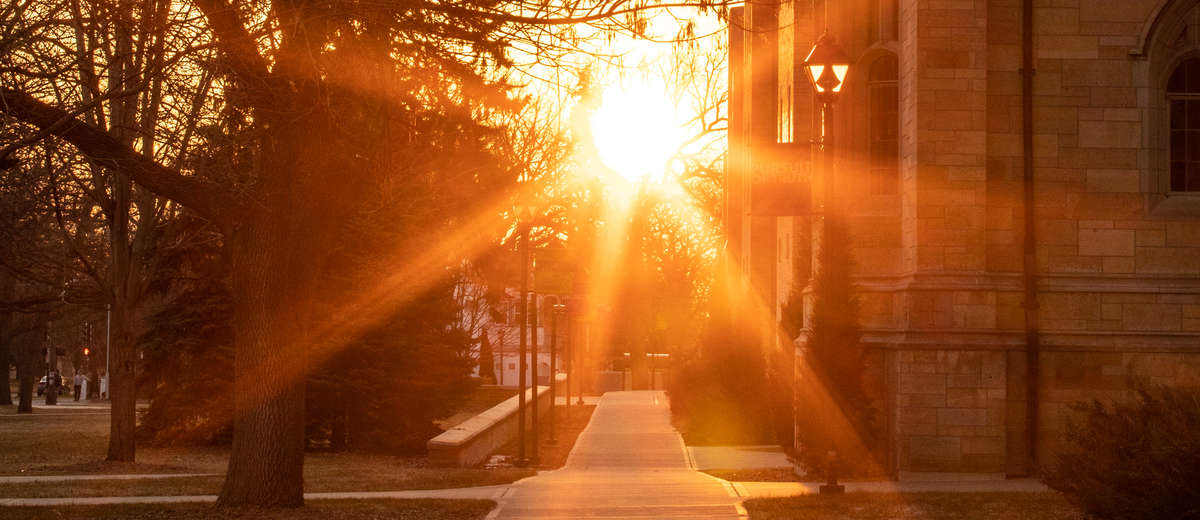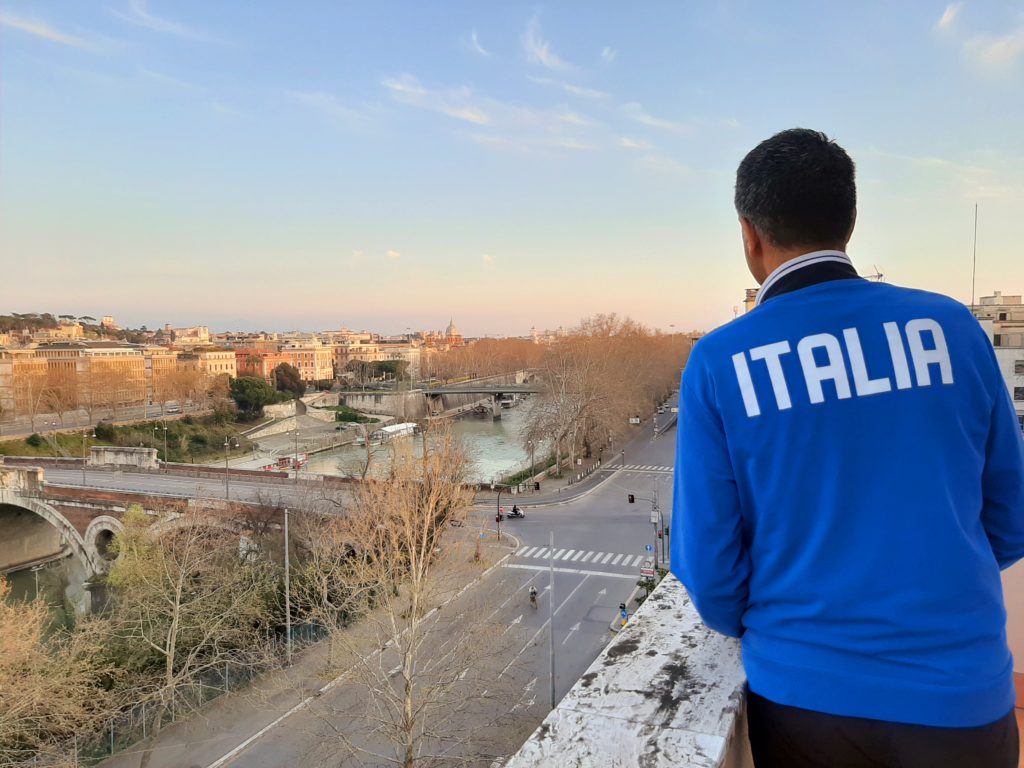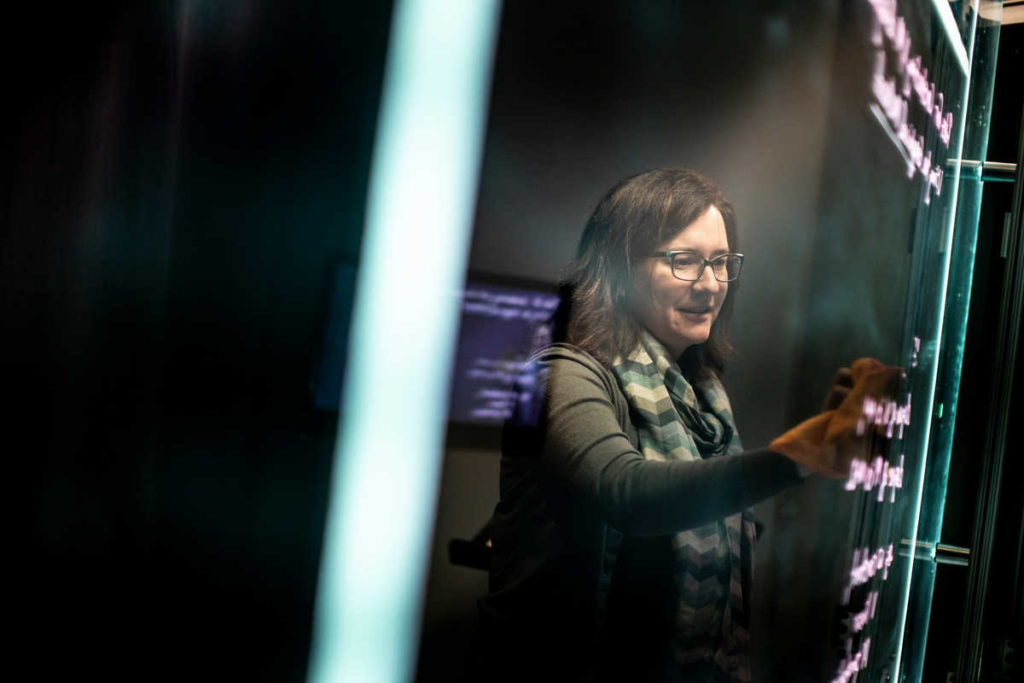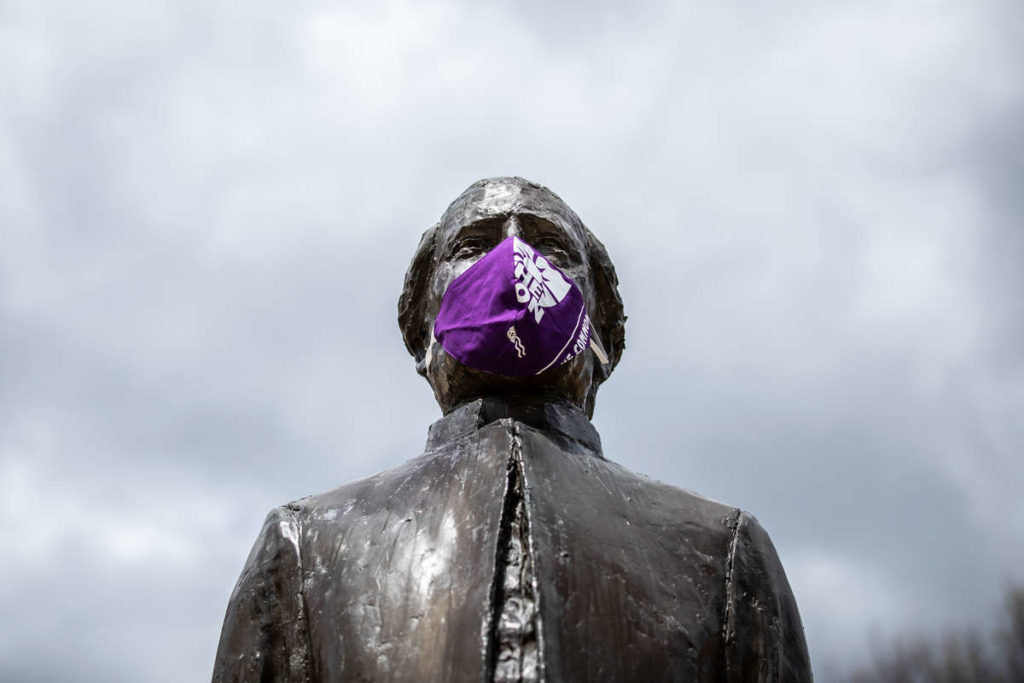This story is featured in a special edition of St. Thomas magazine on COVID-19.
Rachel Harris becomes emotional when recalling the launch of the Student Emergency Financial Assistance Program for COVID-19-related financial hardships. Less than 24 hours after it was posted online at the end of March, more than 100 students had applied for the $750 tax-free grant meant to be used for unexpected non-tuition expenses including rent, medical bills, utilities and food. As of the beginning of May, 407 grants totaling more than $260,000 had been awarded.
The stories they told about their needs were heartbreaking.
“We asked them to tell us about their situation,” said Harris, director of finance and planning for Student Affairs. “The diversity of the stories they were telling us, the hardships they had and how every story was different than the one we had just read – it was overwhelming. There was this theme of ‘I really need this because I’m at home and I have this responsibility to participate in the taking care of my family. I have to make sure we’re all safe and healthy.’”
While the university has had a general student emergency fund for years, this COVID-specific one comprises funding from donors and the Undergraduate Student Government, which contributed funds originally marked for events that were canceled. The university also received $2.5 million from the federal Coronavirus Aid, Relief and Economic Security (CARES) Act to aid students suffering hardships because of the virus.
Along with funding, the pandemic quickly altered the way many things were done on campus. It also changed what students needed from professors, administrators and staff. While academically, the race was on to move classes online, students also were asking for extra support. From supplying laptops and helping find WiFi hotspots, to prioritizing scholarship fundraising and finding ways to celebrate seniors, the St. Thomas community came together to rally around the university’s No. 1 priority – its students.
Sudden changes
Staff from the Center for Well-Being, together with Global Learning and Strategy, began monitoring the coronavirus in late January and discussing the impact on students studying abroad. The University Action and Response Team (UART) – a group of university administrators representing key departments – started meeting daily soon thereafter about COVID-19-related issues and began communicating with the St. Thomas community. On Feb. 26, President Julie Sullivan made the decision to close the Rome campus following UART’s recommendation.
As COVID-19 communications ramped up, March brought a flurry of announcements, including moving classes online, resident students moving out of on-campus housing (with some exceptions) and the implications of a stay-at-home order from Minnesota Gov. Tim Walz for the university.
Students received residence hall and meal plan pro-rated refunds. Student workers, some of whom thought they were suddenly out of a job, were paid through the end of the semester. Sophomore Olivia Stensrud, a geology major and employee at the Phone Center, was one of many students thankful for the continued paycheck. She said the job meant “everything” to her and she wouldn’t have been able to attend school without it.
“I reached out to thank President Sullivan and she emailed me back fairly quickly,” Stensrud said. “She said, ‘you’re welcome’ and that she hoped everything was going well. It feels like she really cares about every single one of her students. That she was right there for us.”

Registered Nurse Katy Steigauf disinfects an exam room at the Center for Well-Being. Critical staff remain on campus to serve a small number of students still residing in on-campus housing. Mark Brown/University of St. Thomas
A focus on well-being
In early February, St. Thomas celebrated the highly anticipated dedication and grand opening of the Haggerty Family Foundation Facility for the Center for Well-Being.
Center for Well-Being Executive Director Madonna McDermott said staff adjusted rapidly to the demands the pandemic placed on students. They provided education and care by switching to tele-mental health for both individual and group therapy, and tele-health for many of the students.
“Health Services continues to see students, faculty and staff in person frequently following a tele-health assessment,” McDermott said. “This includes assessing and testing for COVID-19 and working closely with the Minnesota Department of Health.”
The center added after-hours crisis and urgent mental health care services; Health Promotion and Violence Prevention reached out to students with a variety of offerings including yoga for anxiety, meditation training and violence prevention.
“The Center for Well-Being staff are able to provide the same level of care and education as previously, as well as respond to the many questions and concerns about COVID-19,” McDermott said. “Sometimes the students ask questions about their own health and other times it is related to a friend or relative. One of the challenges for students is finding quiet places to have private conversations with a provider. We have been able to continue to provide care for urgent issues that keep students out of emergency rooms or other urgent-care facilities that are not able to separate ill from well patients as easily as we can.”
Checking on students
The Division of Student Affairs recognized right away how important it was to engage with students virtually and highlighted a variety of chances to connect including creative activity kits, diversity and inclusion activities, Center for Well-Being offerings and Center for the Common Good volunteer opportunities. They helped students obtain laptops and find WiFi hotspots when classes moved online and sent a virtual care package to all undergraduates.
“The commitment to students is so strong at St. Thomas,” said Linda Baughman, dean of students. “Everyone changed the way they worked within about 48 hours. It has really emphasized or brought to light what a strong community we have at St. Thomas. You know, I’ve seen everybody across the board rally. And it makes you proud that you work at the university.”
The division also led the charge of reaching out to students to see how they were doing by calling all first-year students and transfer students and sending individual texts to sophomores, juniors and seniors.
“The text said we miss seeing our students on campus and this is just a quick check-in as to how you’re doing. There are many resources available – let me know any questions and have a great day,” said sophomore elementary education major Emma Monson about the message she received. “It was really nice that it came personally to me. My professors will reach out because they know me, but this person from St. Thomas reaching out who doesn’t know me – that was cool.”

Staff members from the Center for the Common Good pack Tommie Shelf food bags at Keystone Community Services in St. Paul on May 4. Tommie Shelf provides up to 25 pounds of groceries a month to students and community members.
Financial support
As things began to quickly unfold in mid-March, Vice President of University Advancement Erik Thurman said it was clear – especially when unemployment numbers started to climb – some students and their families were going to be challenged financially.
“Our goal always at St. Thomas is to graduate each and every enrolled student, and we didn’t want students’ inability to pay for rent, utilities, food, medical expenses, tuition or other expenses related to their educational experience to be a barrier to that end,” Thurman said.
The university currently has three COVID-19-related fundraising priorities to directly support students and the student experience during the pandemic: Hardship Scholarships, the Student Emergency Fund and the Student Excellence Fund. Thurman notes scholarships are always the main priority.
Along with helping students be successful in school, Thurman said they’ve doubled efforts to help the Class of 2020 secure jobs and internships. One way of making these connections is through the university’s online networking platform, St. Thomas Connect.
“The university’s Career Development Center surveyed graduating seniors to understand the circumstances of students’ employment plans after graduation, and we’re engaging our alumni to help fill any gaps however we can,” Thurman said. “Our Tommie Network of over 115,000 St. Thomas alumni is already a powerful force helping students make connections to jobs and careers, and we plan to leverage this even more knowing the pandemic has turned the economy and job market upside down in ways that are completely unprecedented. Tommies help Tommies, and we want to make it easy for our alumni to make meaningful connections.”

Staff members from departments across campus work on assembling commencement boxes for 2020 graduating seniors in Woulfe Alumni Hall on May 5, in St. Paul. The boxes, containing diplomas, tassels, gowns and other items, were sent out in lieu of an in-person commencement ceremony due to the coronavirus pandemic.
Celebrating seniors
One of the big challenges was figuring out how to celebrate the seniors in a meaningful way. The university sent a “Cap and Gown Celebration Box” to each senior and Student Affairs collaborated with other organizations for a weeklong Senior Days celebration featuring a host of activities including a virtual graduation cap design session, a toast to the senior class, a celebratory video and a special Zoom edition of March Through the Arches.
“We met with several student leaders to figure out what we could do to still help celebrate graduation,” said Karen Lange, vice president for Student Affairs.
“This is such a milestone in their lives,” she continued. “It’s so important to be able to celebrate that and to acknowledge all of their hard work.”
While the St. Thomas community continues to rally around its students during the COVID-19 pandemic, everyone is looking forward to a time when campus is filled with students once again. Baughman, for one, can't wait to see students in person.
“I hope I never take for granted again what it means to be in community on campus with students, faculty and staff and what a gift it is to be on campus together, working and learning,” Baughman said.







